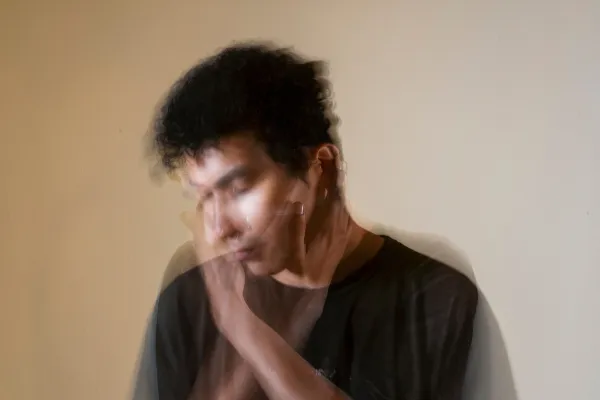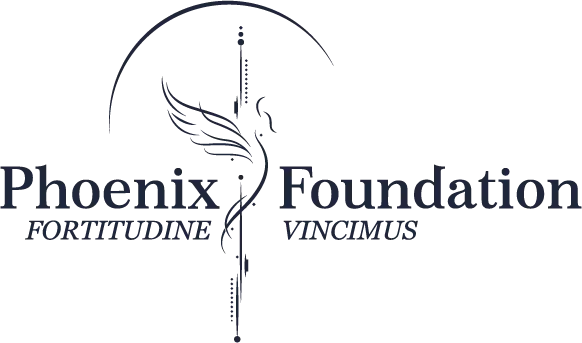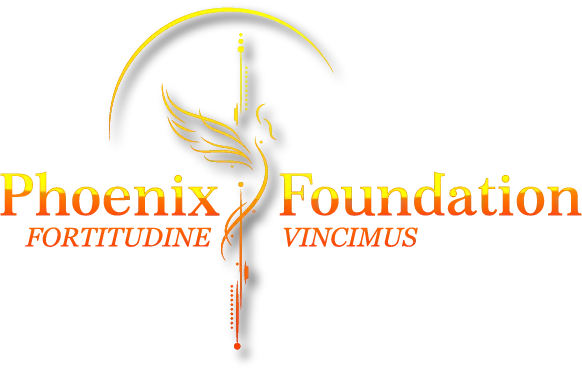HAVE INQUIRIES?
Text or Call us now +63 40 520 2223
HAVE INQUIRIES?
Text or Call us now +63 40 520 2223
We share expert advice, personal stories of resilience, mental health tips, and updates on our latest initiatives.

Understanding Trauma and Healing Through Somatic Therapy | The Phoenix Foundation
How Trauma Lives in the Body and the Path to Healing
Trauma doesn’t just live in our memories—the body keeps its own record. If you’ve experienced trauma, you’ve likely felt its effects in ways beyond emotional turmoil—chronic pain, tension, fatigue, or even difficulty breathing. This mind-body connection is at the heart of Dr. Bessel van der Kolk’s groundbreaking book, The Body Keeps the Score.
Understanding that trauma impacts both body and mind is pivotal for recovery. Whether you’re a survivor, a mental health professional, or a bodywork practitioner, exploring this connection can profoundly transform how trauma is processed and healed.
The Body as Trauma’s Repository
When trauma occurs, it overwhelms the body’s ability to cope. While your brain might repress or manage the emotional aspects, your body holds onto that experience in subtle yet significant ways. For instance:
Fight-or-flight responses may never shut off, leaving you in a state of chronic hypervigilance.
The nervous system may become dysregulated, manifesting as anxiety, nightmares, or even a numb, disconnected state.
Physical ailments, like chronic muscle tension or inflammation, may arise due to the unresolved stress locked within.
This is why someone recovering from trauma may continue to experience distress even if time has passed or talk therapy has been employed. Words alone often aren’t enough to free the body from trauma’s grip.
Why the Mind-Body Connection Matters

Dr. van der Kolk emphasizes that healing trauma requires more than intellectual understanding—it demands working with the body itself. Trauma physically alters the way the brain and body respond to the world, often placing survivors in a constant state of fight, flight, or freeze. Without addressing these physiological changes, true healing can remain out of reach.
Body-based therapies have emerged as highly effective tools in reconciling this dual impact of trauma. They focus on releasing stress stored in the body and re-teaching the nervous system to feel safe and regulated again.
The Role of Body-Based Therapies in Healing
While traditional talk therapy can be a useful component of trauma recovery, combining it with bodywork often produces deeper and more lasting results. Some evidence-based body-centered approaches include:
Somatic Experiencing: This method focuses on gently releasing physical stress and trauma from the body. It aims to complete unresolved fight-or-flight responses.
Yoga and Breathwork: Both practices calm the nervous system, release physical tension, and foster mindfulness—a key for grounding trauma survivors in the present moment.
Trauma-Informed Massage and Bodywork: Physical therapies can gently relax the body and allow stored tension to surface and dissipate.
EMDR (Eye Movement Desensitization and Reprocessing): While initially focused on bilateral brain stimulation, EMDR pays close attention to physical sensations, promoting a sense of relief over time.
These modalities empower individuals to safely reconnect with their bodies and begin to release the emotional and physical residue of trauma.
Insights from The Body Keeps the Score
Dr. van der Kolk’s book underscores the necessity of integrating the body into trauma care. He shares evidence and case studies demonstrating how unresolved physical stress perpetuates emotional wounds. For survivors, this realization can be validating—it’s not “all in your head.” For professionals, it’s an essential call-to-action to treat trauma holistically.
Among the key takeaways from the book are:
Healing trauma isn’t just about revisiting memories; it’s about rewiring the body’s reactions to those memories.
Trauma survivors must learn to feel safe within their own bodies. Without this foundational step, recovery may stall.
Somatic practices (body-focused approaches) are essential to release trauma and forge new pathways of well-being.
Finding Support on Your Healing Journey

If you or someone you know is navigating the effects of trauma, now is the time to adopt a holistic perspective. Organizations like The Phoenix Foundation recognize the profound importance of trauma-sensitive care that addresses the mind, body, and spirit. The foundation actively supports initiatives rooted in body-based approaches, empowering survivors to take back their lives.
Healing is not just about understanding what happened to you. It’s about forging a relationship with your body that is rooted in safety, love, and resilience.
Explore Somatic Healing
Whether you’re a survivor, a mental health professional, or simply curious about the subject, The Body Keeps the Score is a foundational read for understanding how to address trauma holistically. And for those ready to take the next step, consider exploring somatic therapies like yoga, breathwork, hypnosis or somatic experiencing.
Your pathway to healing starts with you—and your body is ready to tell its story. With the right tools and support, release, recovery, and renewal are possible.
Need help finding resources or curious about trauma-informed practices? Connect with The Phoenix Foundation for tools, guidance, and a supportive community to guide your healing.
Your Support Can Make a Difference Today.
Your Support Can Make a Difference Today.
The Phoenix Foundation is not staffed to offer
emergency mental health services.
If you need immediate help, please consider the following resources:
The Phoenix Foundation
Varsity Medical Professional Building
8 Varsity Estates Circle NW
3rd Floor
Calgary, Alberta
T3A 2Z3

The Phoenix Foundation is located in the traditional territories of the Niitsitapi (Blackfoot) and the people of the Treaty 7 region in Southern Alberta,
which includes the Siksika, the Piikani, the Kainai, the Tsuut’ina, and the Iyarhe Nakoda. The City of Calgary is also home to the Métis Nation.
Content © Copyright - The Phoenix Foundation
The Phoenix Foundation is not staffed to offer
emergency mental health services.
If you need immediate help, please click on the BUTTON below.
Location
The Phoenix Foundation
Varsity Medical Professional Building
8 Varsity Estates Circle NW
3rd Floor
Calgary, Alberta
T3A 2Z3

The Phoenix Foundation is located in the traditional territories of the Niitsitapi (Blackfoot) and the people of the Treaty 7 region in Southern Alberta,
which includes the Siksika, the Piikani, the Kainai, the Tsuut’ina, and the Iyarhe Nakoda. The City of Calgary is also home to the Métis Nation.
Content © Copyright - The Phoenix Foundation

